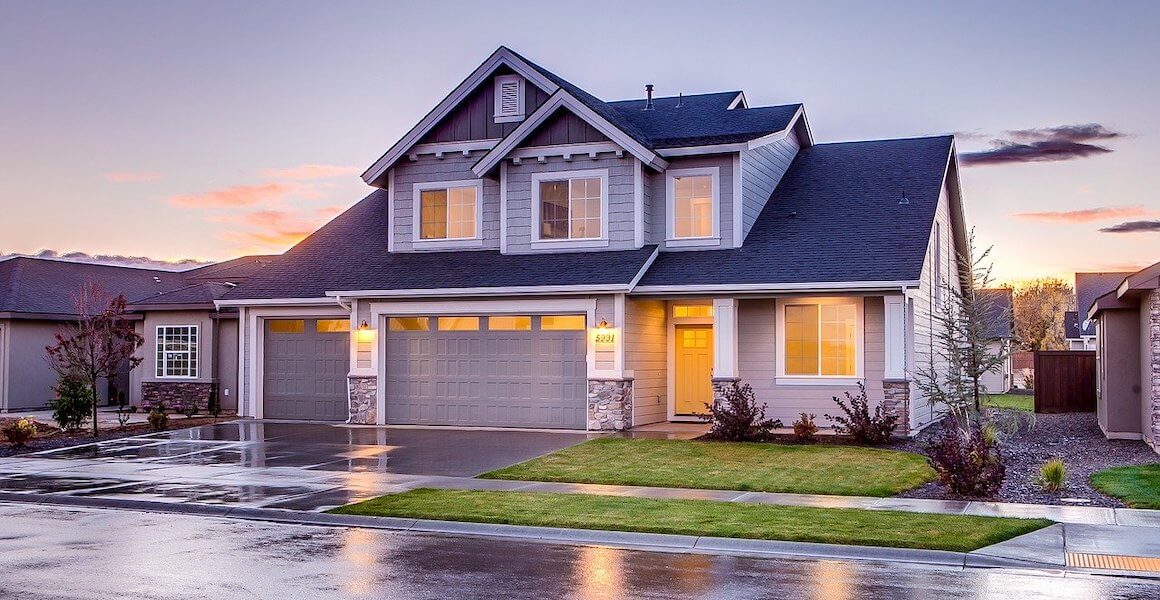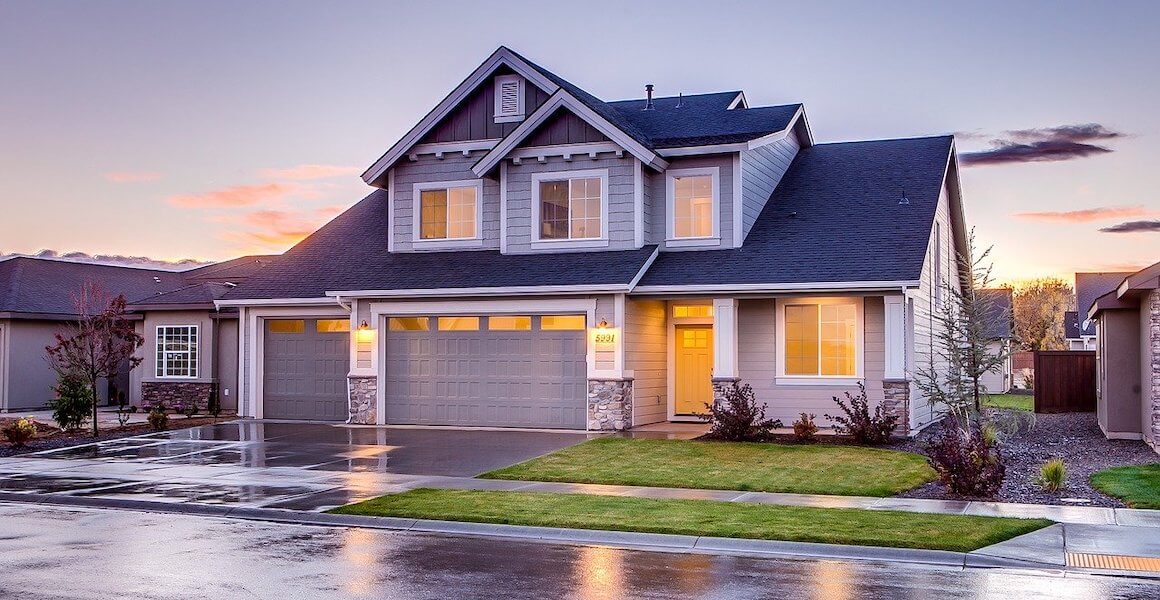
Should You Refinance Your Home & When Should You Do It

Refinancing your home mortgage loan can either save you money or cost you money. It can either improve your financial situation or make it worse.
The difference lies in your understanding of the refinancing process and careful assessment of how that fits into your situation.
There are many reasons why refinancing your home mortgage may be a good idea. Reducing your interest rate or the term of your loan are two of the main reasons.
Others may include tapping into the equity you have built, consolidating debt, and escaping unfavorable loan terms.
Whatever the reason, homeowners need to carefully weigh the pros and cons of their specific situation to determine if refinancing benefits outweigh the costs. The first step to answering the question, "should you refinance your home", is to understand what refinancing is and how it works.
What Does Refinancing Mean?
When you refinance your home mortgage, you are paying off the current loan with a new one. The process is nearly identical to obtaining a first mortgage to buy a home and requires several steps.
Thus, consumers should be confident that the benefit of refinancing is worth the effort.
Personal finances and situations change over time. Ideally, you will pay off debt and improve your credit score, see an increase in income and build equity in your home.
As your financial situation improves, so will your ability to access better interest rates and other mortgage options than you could when you first bought your home.
All of this creates an ability to refinance your home loan.
There are many reasons why refinancing may be the right choice for your household. Some of the most common include:
- Reducing your interest rate
- Shortening the term of the loan
- Changing between a fixed-rate mortgage and an adjustable-rate mortgage
- Tapping into the equity, you have built
- Get out from under an FHA loan
- Handle a severe financial emergency
Reasons Refinancing Your Home Loan Makes Sense
Many financial experts say there are only two good reasons to refinance your home:
- to shorten the term of the loan or to lower the interest rate.
While those may the best reasons, they are by no means the only reasons to refinance.
The base purpose of refinancing your home should be to improve your financial situation and the value of your investment in your home. That may mean different things to different people.
Below are some of the most common reasons to refinance.
Refinancing to Reduce Your Interest Rate
Reducing the interest rate you pay on your loan is one of the best reasons to refinance.
When the market interest rate drops, you may be able to reduce your total interest payments and/or lower your monthly payment by refinancing.
While financial experts have historically recommended refinancing if you can save a minimum of 2%, modern lenders indicate a savings of 1% is enough to justify refinancing.
An improved credit score is another reason you may consider refinancing your interest rate. To get the best rates, consumers need a minimum credit score of 760.
If your score has climbed above that number since you first obtained your mortgage, you should be able to reduce your interest rate.
Saving money is not the only benefit of refinancing to reduce your interest rate. This sort of restructuring of your home loan allows you to increase the rate at which you build equity in your home.
For example:
A $100,000 home with a 30-year fixed-rate loan at 5.5% interest has a monthly payment of $568. Reducing the interest rate on this loan to 4.1% will reduce the monthly payment to $477.
Refinancing to Shorten the Term of the Loan
Shortening your mortgage term can be a double-edged sword if you are not vigilant in your planning.
Reducing the amount of time you have to repay your loan will raise your monthly payment. At the same time, it will lower the amount of total interest paid on the loan.
When the market interest rates are low, it may be possible to refinance a high-interest 30-year mortgage for a shorter term without increasing your monthly payment.
In this situation, refinancing is a win-win for homeowners.
Crunch the numbers to determine what works for your specific situation.
For example:
For a $100,000 home with a 30-year fixed-rate mortgage, refinancing from 9% to 5.5% can allow you to reduce your loan term to 15 years while only raising your monthly payment by $12, from $805 to $817.
However, if your 30-year loan is already at 5.5% with a payment of $568, refinancing to a 15-year loan with a 3.5% interest rate will actually increase your payment to $715 per month.
Refinancing to Change Between an Adjustable-Rate Mortgage & Fixed-Rate Mortgage
Homeowners can also refinance to switch from an adjustable-rate mortgage (ARM) to a fixed-rate mortgage and vice versa.
To determine if this is a good reason for you to change, you must first understand the difference between them.
- What is a fixed-rate mortgage? A fixed-rate mortgage has an interest rate that is locked in at the time that the loan originates and does not change as the market interest rates do. Conversely, an ARM has a variable interest rate that fluctuates as the market rate does.
The majority of these types of refinancing are changing from an ARM to a fixed-rate mortgage.
This change allows more consistency in your monthly payment and provides borrowers the opportunity to lock in a lower interest rate.
Some situations make it beneficial to go from a fixed-rate to an adjustable one. ARMs generally start out offering lower interest rates – and thus, lower monthly payments – than their fixed-rate alternatives.
If you plan on selling your home in a few years, switching to an ARM can free up money now by lowering your monthly payment. This fact is especially true if market interest rates are currently in a downward trend as you have less concern over rate hikes.
Refinancing to Tap Equity
Refinancing can quickly become a slippery slope of self-perpetuating debt if you are not careful. This is especially true if you are refinancing to tap into the equity you have built in your home.
Using this equity to consolidate debt or cover major expenses like a home remodel may seem like a wise investment but may not be.
Cash-out refinancing allows a loan to be taken that is in excess of the cost of the loan. It will enable the homeowner to take more money than they need so that the extra can be used elsewhere.
While this can be helpful, you need to be sure that it is the right choice for your financial situation.
Entering into further debt is never wise financial practice. Thus, refinancing a mortgage simply to access your equity is often a bad idea. Look for situations where you can also lower your interest rate or monthly payment to make the most of your refinance.
Refinancing to Get Rid of an FHA Loan
Loans secured by the Federal Housing Administration (FHA) come with a lot of strings attached. One such string is the need to pay for mortgage insurance premiums (MIPs).
Borrowers who are unable to produce a down payment in excess of 10% of the loan amount must pay these MIPs for the loan's life.
These premiums are assessed per $100,000 borrowed and can cost homeowners hundreds or thousands of dollars annually.
The only way to eliminate this added expense is to obtain a mortgage that the FHA does not secure.
Refinancing to Handle a Serious Financial Emergency or Consolidate Debt
While not ideal, refinancing your home can also free up money if an unexpected emergency arises. However, most refinancing efforts take at least two months to complete, making it less than ideal for producing urgently needed funds.
As discussed earlier, cash-out refinancing is often used to fund these emergency situations.
This sort of borrowing involves taking on a larger debt overall but allows you to take some of the equity you have built when you need it most.
Refinancing to stave off financial disaster is often only a band-aid for the real issue, poor financial habits and planning. If you do not change your attitude towards debt, you will soon find yourself in another financial emergency without the ability to refinance to save you.
This is also true for debt consolidation.
Paying off debt accumulation through a home refinance is only as effective as your commitment to being debt-free. If you continue to follow the same patterns that got you in debt, you will only dig a deeper hole.
Consult with a financial planner if you find yourself falling into the same traps that created the debt problem in the first place.
Additional Details to Consider
Why you may want to refinance is not the only consideration when deciding if it is the right move for you.
Make sure you look at all aspects of your investment to ensure that you make the right decision about refinancing.
Some things to think about include:
- How long do you plan to stay in the home? Refinancing does not make much sense if you plan to sell your home within the next couple of years. The point is to reduce costs by a little over a long period to add up to significant savings. Offsetting the costs of refinancing requires that you remain in the home for an extended period.
- Can your budget handle the change? Depending on the terms you choose, refinancing can either raise or lower your monthly payment. If your payment is going to go up, you need to make sure that your budget can handle the extra stress. Otherwise, you will need to find another avenue of income to make the refinance affordable for your household. If your payment is going down, it is just as essential that you plan those freed up funds. A sudden influx into a budget without a clear direction can be as dangerous as an unexpected expense.
- How old will you be when the mortgage is fully repaid? Signing on to a 30-year refinance loan basically means starting over again with 30 years to go before you are mortgage-free. If this means carrying debt into your retirement, you may want to reconsider refinancing or look into a shorter term. Should your budget allow you to pay more than the minimum, you may be able to shave a few years off the length of a refinance mortgage.
- How much will refinancing cost you? Refinancing with a new mortgage means closing costs. These typically somewhere between 2% and 6% and include fees for pulling your credit report, title insurance, appraisal and origination of the loan. These closing costs must be considered when determining if the benefits of refinancing outweigh the costs.
Should You Refinance Your Home?
Refinancing can be an excellent move if it improves your long-term financial situation. By asking the right questions and carefully assessing your case, it can also become a valuable tool for controlling debt, freeing up equity, and living your best life.
There are numerous reasons to consider refinancing your home loan. By giving it serious thought and planning carefully, you can determine if it is the right move for you too.
For help with your refinance planning needs in the Jacksonville area, talk with 121 Financial to discover your options!
